|
Equipment specs
Here you can find all the information I have about the equipment used in my published work. I have kept this information so that researchers in the future will be able to find out the capabilities and limitations of the equipment that was used. The table immediately below lists each item of equipment. Further down the page is a list of my papers, giving the equipment used in each paper.
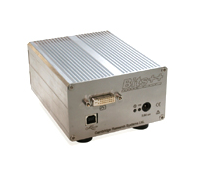
|
|
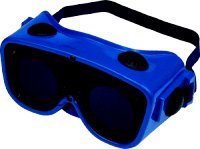
|
- 44 mm clear apertures, set up at 24°C for visible light
- Open shutter transmission: 25% minimum (typically 30%)
- Open:close contrast ratio 500:1 minimum (typically 1000:1)
- 0-90% switching time: 50 µs (typically 35 µs)
|
|
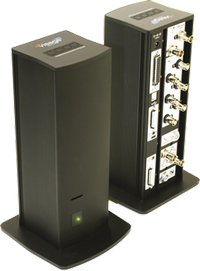
|
- Graphics engine: x4 PCI Express
- Graphics configuration: Dedicated stimulus display (the ViSaGe is not a replacement PC graphics card and does not run Windows)
- Video output: 14 bit video DACs; 14 bit resolution per colour channel; 160MHz pixel clock; 200kHz line scan rate; 200Hz frame rate
- Display memory: 256MB video memory; configured as 32 bits per pixel; separate pixel and overlay planes
- Offscreen memory: Dependent on PC RAM; used for storage of precalculated image sequences
|
|
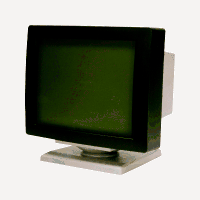
|
The Multisync Clinton Monoray monitor is a modified MR2000HB-MED display with the following features:
- 200 cd/m2 calibrated luminance
- CIE chromaticity coordinates (0.430, 0.540)
- Multi-frequency scanning (V: 50-150 Hz, H: 31-105 kHz)
- SVGA resolution at 150 Hz
 MR2000HB-MED Spec sheet (207 KB) MR2000HB-MED Spec sheet (207 KB)
|
|
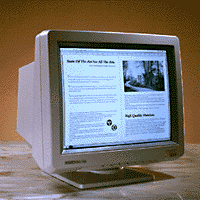
|
| CRT Size |
55 cm
(21 inch) class, 110° deflection Flat Face |
| CRT Surface
Treatment |
ErgoPanel™ |
| Scanning
Frequency |
H: 31.5,
56 - 110 kHz V: 60, 70 - 90 Hz |
| Input
Signals |
RGB Analog |
| Input
Terminal |
BNC x
5 (switchable) |
| Active
Display Size |
402 mm
(H) x 300 mm (V) / 15.8" (H) x 11.8"
(V) |
| Viewable
Display Size |
Diagonal:
501 mm / 19.7" |
| Recommended
Resolution |
1600
dots x 1200 lines |
| Screen
Control |
Analog
(Brightness, Contrast, H/V Position, Adapter) |
| Power
Consumption |
140 W |
| Plug
& Play |
DDC 1/2B |
| Dimensions |
496 mm
(W) x 465 mm (H) x 436 mm (D)
19.5" (W) x 18.3" (H) x 17.2"
(D) |
| Net Weight |
30.4
kg / 67.0 lbs |
| Safety
Standards |
TÜV
Rheinland / GS, CB |
| Ergonomic/Environmental
Standards |
TÜV
Rheinland/Ergonomics (including ISO 9241-3 and MPR-II) |
|
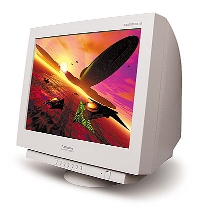
|
|
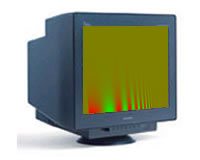
|
|
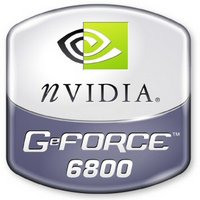
|
|
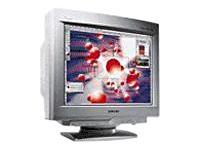
|
|
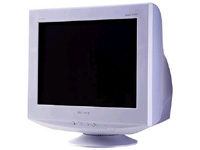
|
|
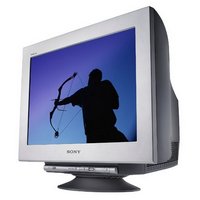
|
|
McIlhagga, W.H. & May, K.A. (2012). Optimal edge filters explain human blur detection.
Journal of Vision, 12(10):9, 1–13.
 View abstract View abstract
Equipment: Mitsubishi 2070SB, driven by Bits++
Huang, P.-C., Maehara,G., May, K.A. & Hess, R.F. (2012). Pattern masking: The importance of remote spatial frequencies and their phase alignment.
Journal of Vision, 12(2):14, 1–13.
 View abstract View abstract
Equipment: Sony CPD-G520, VSG 2/5
May, K.A., Zhaoping, L. & Hibbard, P.B. (2012). Perceived direction of motion determined by adaptation to static binocular images.
Current Biology, 22, 28–32.
 Download PDF (588 KB) Download PDF (588 KB)
 Supplemental Experimental Procedures (56 KB) Supplemental Experimental Procedures (56 KB)
 View abstract View abstract
Equipment: Clinton Monoray, ViSaGe, FE-1 Stereo goggles
May, K.A. & Zhaoping, L. (2011). Exploring the roles of saturating and supersaturating contrast-response functions in conjunction detection and contrast coding.
Journal of Vision, 11(9):11, 1–15.
 View abstract View abstract
Zhaoping, L., Geisler, W.S. & May, K.A. (2011). Human wavelength discrimination of monochromatic light explained by optimal wavelength decoding of light of unknown intensity.
PLoS ONE, 6(5): e19248.
 View abstract View abstract
May, K.A. & Zhaoping, L. (2009). Effects of surrounding frame on visual search for vertical or tilted bars.
Journal of Vision, 9(13):20, 1–19.
 View abstract View abstract
Equipment: Sony CPD-G520P, VSG 2/5
May, K.A. & Hess, R.F. (2008). Effects of element separation and carrier wavelength on detection of snakes and ladders: Implications for models of contour integration.
Journal of Vision, 8(13):4, 1–23.
 Download Quicktime Movie (4.5 MB) Download Quicktime Movie (4.5 MB)
 View abstract View abstract
Equipment: Sony CPD-G520, VSG 2/5
Hess, R.F., Baker, D.H., May, K.A. & Wang, J. (2008). On the decline of 1st and 2nd order sensitivity with eccentricity.
Journal of Vision, 8(1):19, 1–12.
 View abstract View abstract
Equipment: Sony CPD-520GS, driven by Bits++ and NVIDIA GeForce 6800 graphics card - (MSI NX6800-TD256E; part no. MS-8984-12S); Clinton Monoray, driven by VSG 2/5
May, K.A. & Hess, R.F. (2007). Ladder contours are undetectable in the periphery: A crowding effect?
Journal of Vision, 7(13):9, 1–15.
 View abstract View abstract
Equipment: Sony CPD-520GS, Bits++, NVIDIA GeForce 6800 graphics card - (MSI NX6800-TD256E; part no. MS-8984-12S)
May, K.A. & Hess, R.F. (2007). Dynamics of snakes and ladders.
Journal of Vision, 7(12):13, 1–9.
 View abstract View abstract
Equipment: Sony CPD-G520, VSG 2/5
Georgeson, M.A., May, K.A., Freeman, T.C.A. & Hesse, G.S. (2007). From filters to features: Scale–space analysis of edge and blur coding in human vision.
Journal of Vision, 7(13):7, 1–21.
 View abstract View abstract
May, K.A. & Georgeson, M.A. (2007). Added luminance ramp alters perceived edge blur and contrast: A critical test for derivative-based models of edge coding.
Vision Research, 47(13), 1721–1731.
 Download PDF (305 KB) Download PDF (305 KB)
 Supplementary files (5 KB) Supplementary files (5 KB)
 View abstract View abstract
Equipment: Eizo FlexScan 6600, VSG 2/3
May, K.A. & Georgeson, M.A. (2007). Blurred edges look faint, and faint edges look sharp: The effect of a gradient threshold in a multi-scale edge coding model.
Vision Research, 47(13), 1705–1720.
 Download PDF (352 KB) Download PDF (352 KB)
 Supplementary files (4 KB) Supplementary files (4 KB)
 View abstract View abstract
Equipment: Eizo FlexScan 6600, VSG 2/3
Zhaoping, L. & May, K.A. (2007). Psychophysical tests of the hypothesis of a bottom-up saliency map in primary visual cortex.
PLoS Computational Biology, 3(4), e62.
 Download PDF (2.3 MB) Note: This pdf file has higher-quality images than the one that is now available on the PLoS Computational Biology website. They used to provide high and low quality versions, but now only provide low-quality versions. Download PDF (2.3 MB) Note: This pdf file has higher-quality images than the one that is now available on the PLoS Computational Biology website. They used to provide high and low quality versions, but now only provide low-quality versions.
 View abstract View abstract
Equipment: Sony CPD-G520P, VSG 2/5
Perrett, D.I., May, K.A. & Yoshikawa, S. (1994). Facial shape and judgements of female attractiveness.
Nature, 368, 239–242.
 Download PDF (501 KB) Download PDF (501 KB)
 Nature cover (111 KB) Nature cover (111 KB)
 View abstractView press coverage View abstractView press coverage
Thompson, P., May, K. & Stone, R. (1993). Chromostereopsis: A multicomponent depth effect?
Displays, 14, 227–234.
 Download PDF (1.4 MB) Download PDF (1.4 MB)
This paper is also avaliable in CBZ format, in both high quality (10.8 MB) and
medium quality (3.6 MB). Note: CBZ files are actually zip files containing the scanned images. You can change the file extension to '.zip' and unzip them as normal to get the image files. But if you keep them as CBZ files, you can read them with the free CDisplay comic book reader, which is a lot less sluggish than Acrobat Reader when viewing scanned documents.
 View abstract View abstract
|










